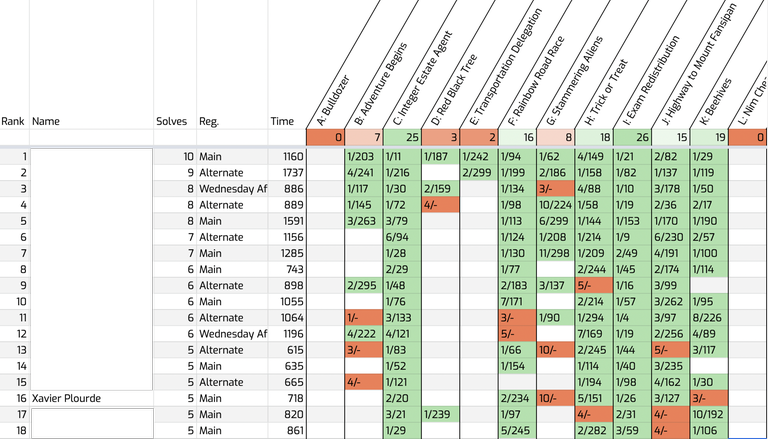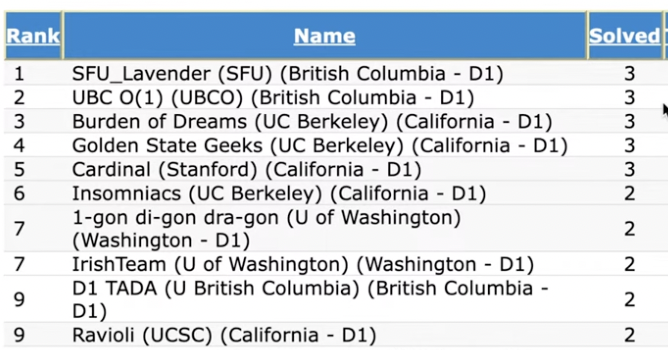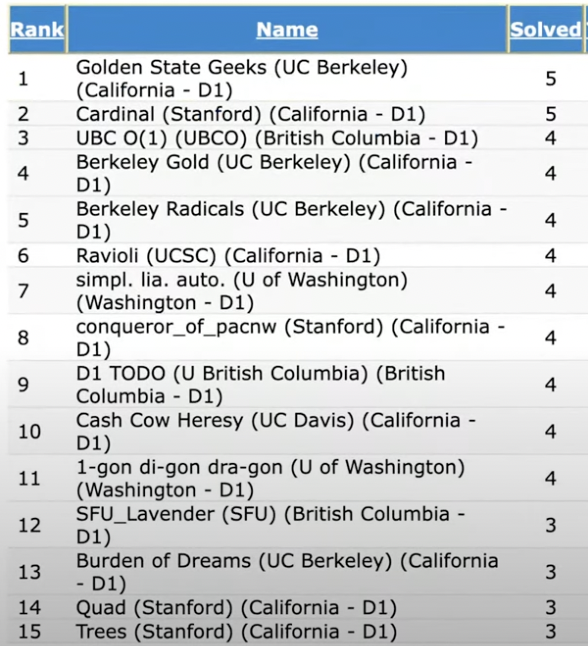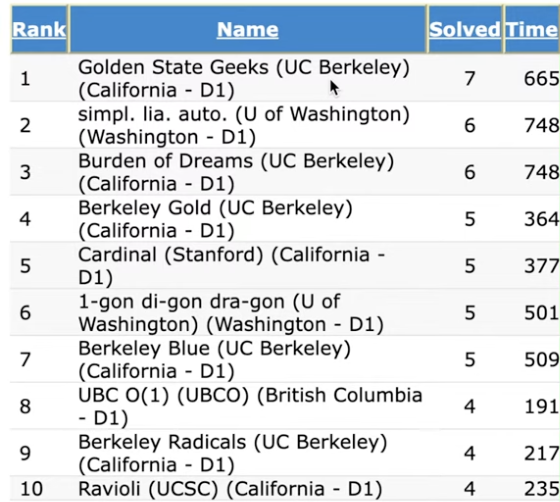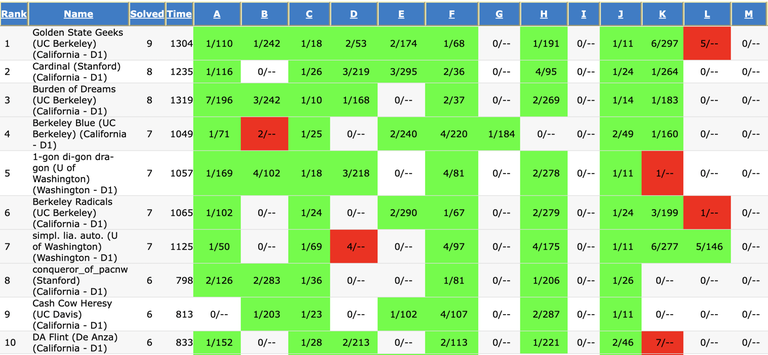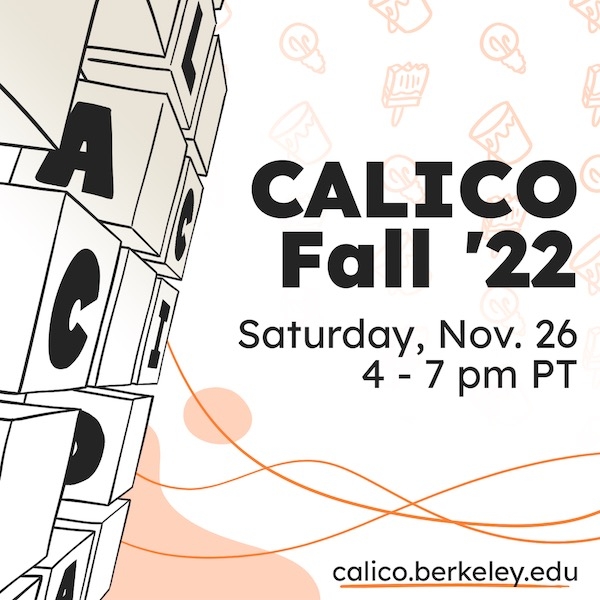Hello Codeforces!
We are excited to invite you to compete in the California Informatics Competition (CALICO) Fall '23! The contest will start on Saturday, November 18, 2023 at 4:00 p.m. PT and will be 3 hours long. Registrations are now open and will be until November 15, 2023 at 11:59 p.m. PT, so register here while you can! The contest will take place virtually on our custom judge platform.
The California Informatics Competition (CALICO) is a semiannual team programming contest organized by students at the University of California, Berkeley. We create original problems to encourage students to grow their problem-solving skills and learn algorithms in fun and exciting ways. Check out our website to learn more about the contest and join our discord server to get announcements, make teams, hang out, and more!
The contest will be 3 hours long and you can compete solo or in a team of up to 3. There will be around 8-12 problems spanning a wide range of difficulty for all skill levels. Some problems will have bonus test sets, where more efficient or advanced solutions can earn additional points. At least one of the problems will be interactive. Anyone can compete, but only pre-college teams will be eligible to win prizes. Editorials for each problem will also be available after the contest. More details will be released as the contest date approaches.
These awesome problems and editorials are written, prepared, and tested by the CALICO Team, including Bungmint, plourde27, yjp20, ss1237, bradley.louie1, mudkip, alfphaderp, vcivek, voidcs, fatant, JayU_, skywire2000, and many more!
We’ve had a ton of fun creating these problems! We think there will be something interesting for everyone, regardless if you’re totally new or an experienced competitor.
Good luck on the contest!
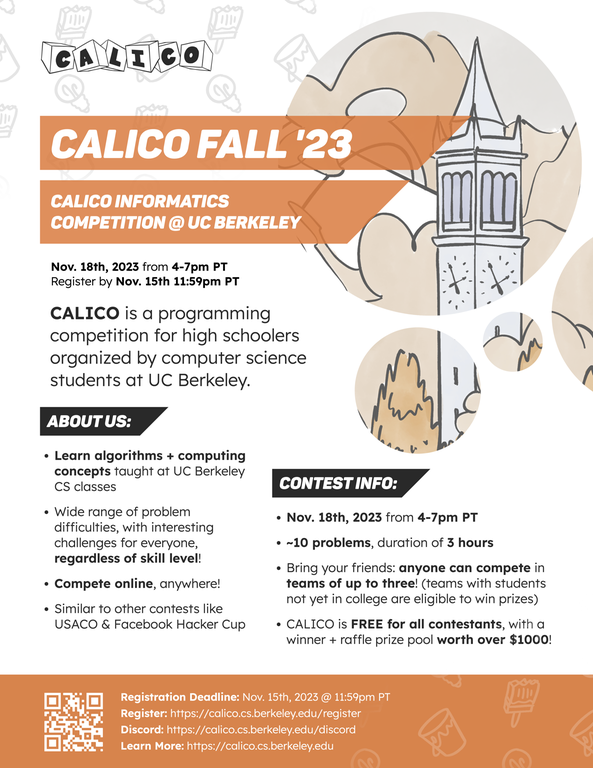
Link to English flyer | Chinese flyer








